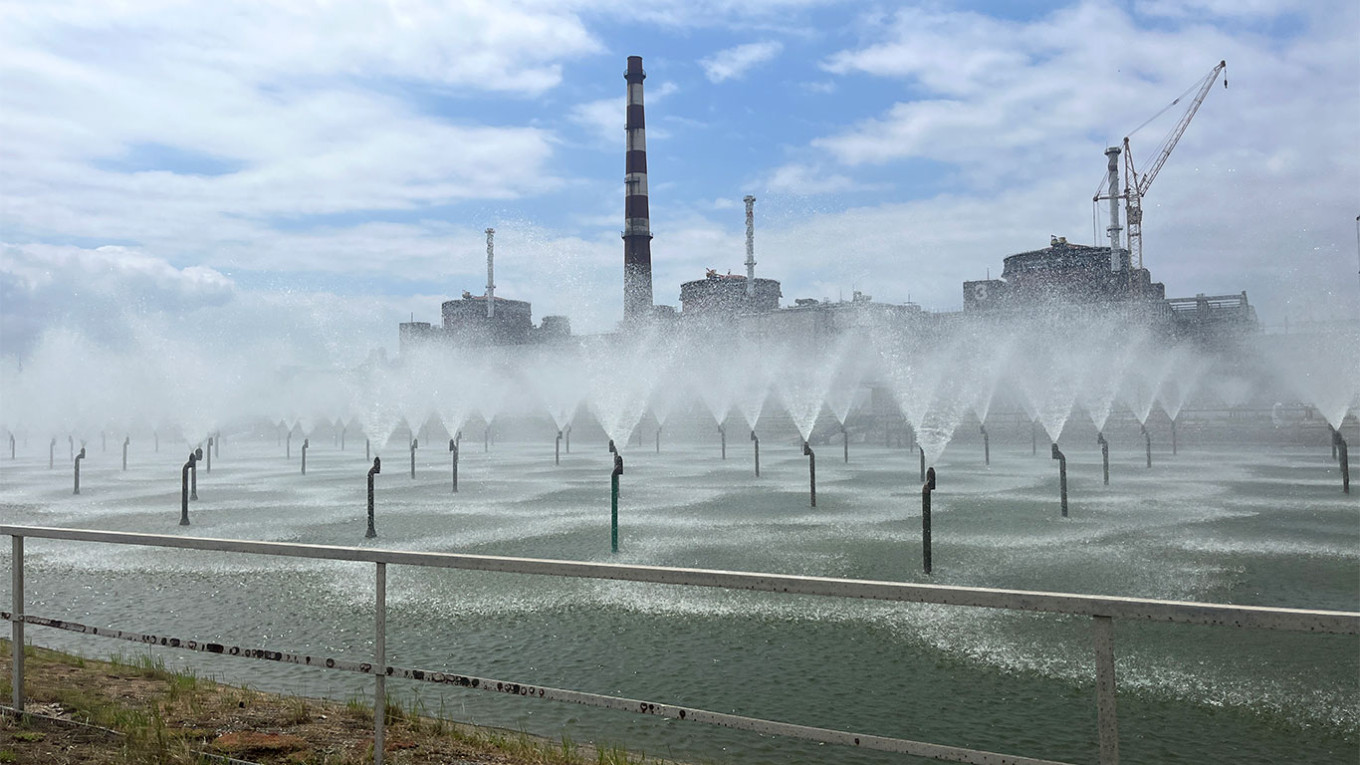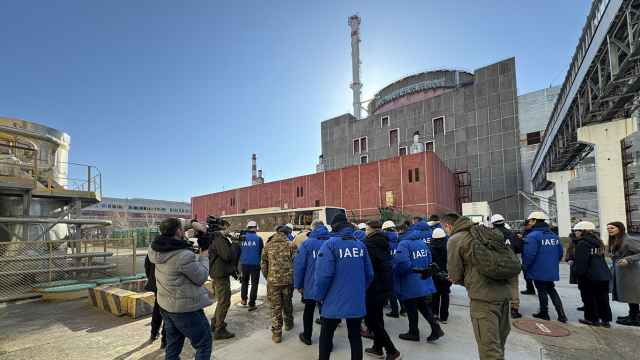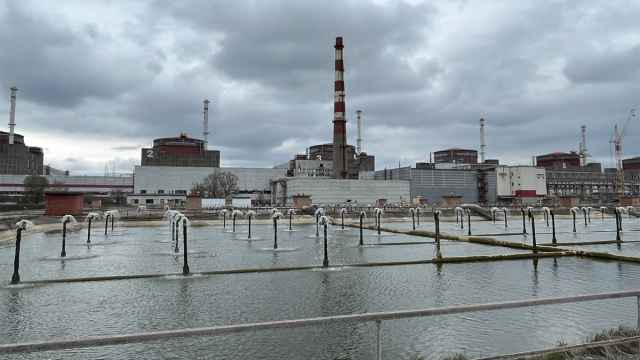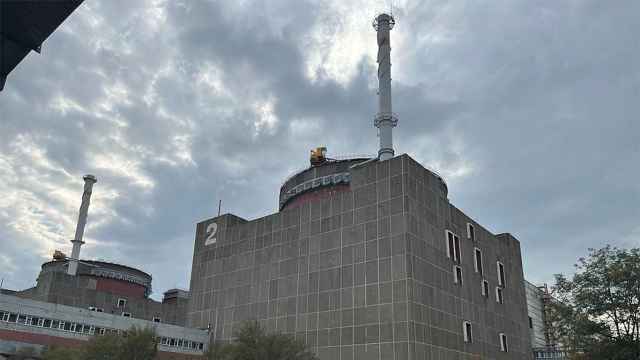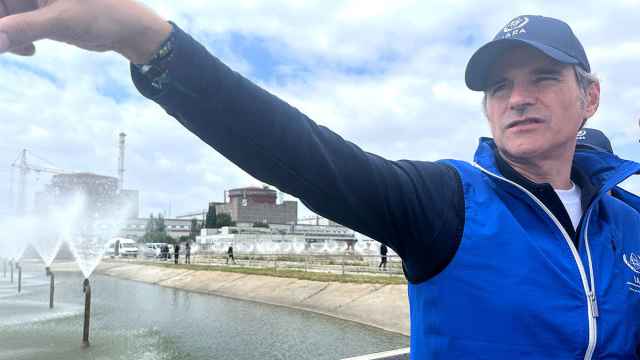Moscow and Kyiv have traded accusations of planning "dangerous provocations" at the Moscow-occupied Zaporizhzhia nuclear power plant in Ukraine this week, raising alarm over the risks of a radioactive disaster at Europe's largest nuclear plant.
Ukrainian President Volodymyr Zelensky on Tuesday warned that Russia was plotting an incident at the Zaporizhzhia plant, while Moscow said Wednesday that there was a high “threat of sabotage” at the plant.
Russia and Ukraine have regularly accused each other of putting the plant's safety at risk since the outbreak of the war in February 2022.
Here is what we know about the situation:
What does Russia say?
Kremlin spokesman Dmitry Peskov on Wednesday described the situation at the Zaporizhzhia plant as “tense.”
“The threat of sabotage from the Kyiv regime is really high — sabotage that could have catastrophic consequences," Peskov told reporters, alleging that Ukraine was behind the destruction of the Kakhovka hydroelectric power plant last month.
Peskov’s statement came one day after state nuclear agency Rosatom accused Kyiv of planning an attack on the plant.
“We got information that I am authorized to announce... On July 5, literally at night, in the dark, the Ukrainian army will try to attack the Zaporizhzhia nuclear power plant,” Rosatom adviser Renat Karchaa told Russian state television.
What does Ukraine say?
Zelensky on Tuesday told his French counterpart Emmanuel Macron that Russia was planning “dangerous provocations” at the Zaporizhzhia plant, adding that Kyiv “agreed to keep the situation under maximum control together with the IAEA (International Atomic Energy Agency).”
In his evening address, Zelensky said Russia had “installed objects similar to explosives” on the plant, according to Ukrainian intelligence.
“Perhaps to simulate the hit on the plant. Maybe they have some other scenario. But in any case, the world sees it,” the Ukrainian leader said, adding that “radiation is a threat to everyone in the world.”
The claim about the explosives was previously made by the Ukrainian army, which said that “external objects similar to explosive devices were placed on the outer roof of the third and fourth reactors” at the site.
“Their detonation should not damage power units, but may create a picture of shelling from the Ukrainian side,” it said, alleging that Moscow would “misinform on this.”
What is the situation at the nuclear plant?
Located on the Dnipro River, the Zaporizhzhia nuclear power plant is the largest nuclear complex of its kind in Europe and among the 10 largest in the world.
The facility has been under the control of Russian forces since they seized it in March 2022.
Currently, the plant's reactors have been placed in shutdown for safety precautions and are no longer producing electricity, but still need both power and cooling water.
Moscow and Kyiv's latest traded accusations raise questions about the potential consequences of such an attack.
According to Pavel Podvig, a senior researcher at the United Nations Institute for Disarmament Research, a potential attack is “very unlikely to spread radiation beyond” the power plant.
Andrei Ozharovsky, an engineer-physicist and radioactive waste safety specialist, also said “the signal that something terrible is being prepared” at the power plant would be one of its reactors being “prepared for operation at capacity.”
The BBC's verification team, which examined satellite imagery of the plant, was unable to verify Ukrainian officials' claims that the Russian military placed objects resembling explosive devices on the plant's roof.
On Wednesday, International Atomic Energy Agency (IAEA) chief Rafael Grossi called for additional access to the Russian-occupied nuclear power plant to "confirm the absence of mines or explosives at the site."
In recent weeks, IAEA staff on site have inspected various locations and “did not detect any mining activity, but we continue to remain vigilant," Grossi said, according to Russia’s state-run TASS news agency.
Last month, the agency established its five basic principles for the protection of the nuclear facility, which state “that there should be no attack from or against the plant and that it should not be used as storage or a base for heavy weapons — multiple rocket launchers, artillery systems and munitions, and tanks.”
AFP contributed reporting.
A Message from The Moscow Times:
Dear readers,
We are facing unprecedented challenges. Russia's Prosecutor General's Office has designated The Moscow Times as an "undesirable" organization, criminalizing our work and putting our staff at risk of prosecution. This follows our earlier unjust labeling as a "foreign agent."
These actions are direct attempts to silence independent journalism in Russia. The authorities claim our work "discredits the decisions of the Russian leadership." We see things differently: we strive to provide accurate, unbiased reporting on Russia.
We, the journalists of The Moscow Times, refuse to be silenced. But to continue our work, we need your help.
Your support, no matter how small, makes a world of difference. If you can, please support us monthly starting from just $2. It's quick to set up, and every contribution makes a significant impact.
By supporting The Moscow Times, you're defending open, independent journalism in the face of repression. Thank you for standing with us.
Remind me later.


